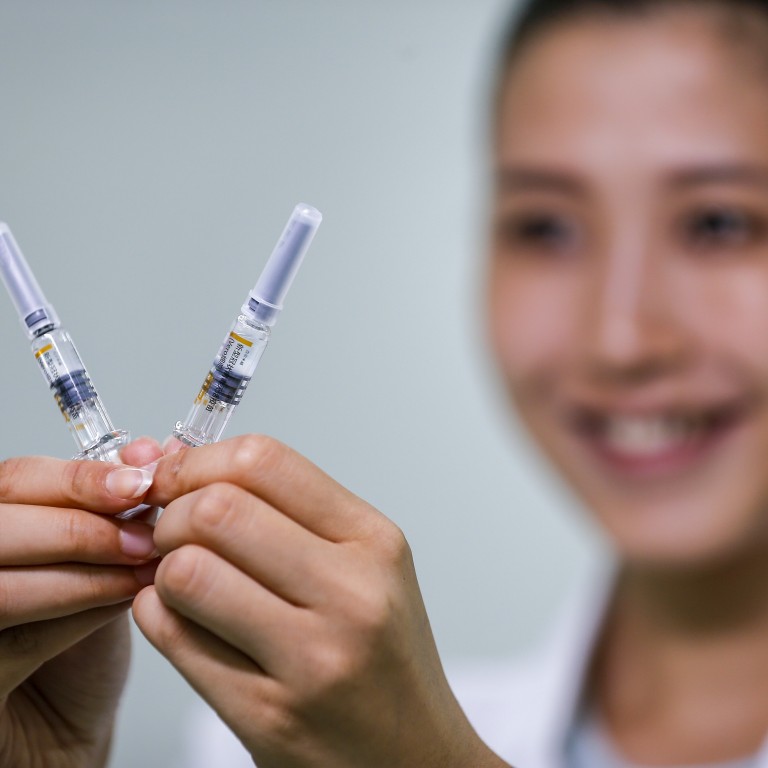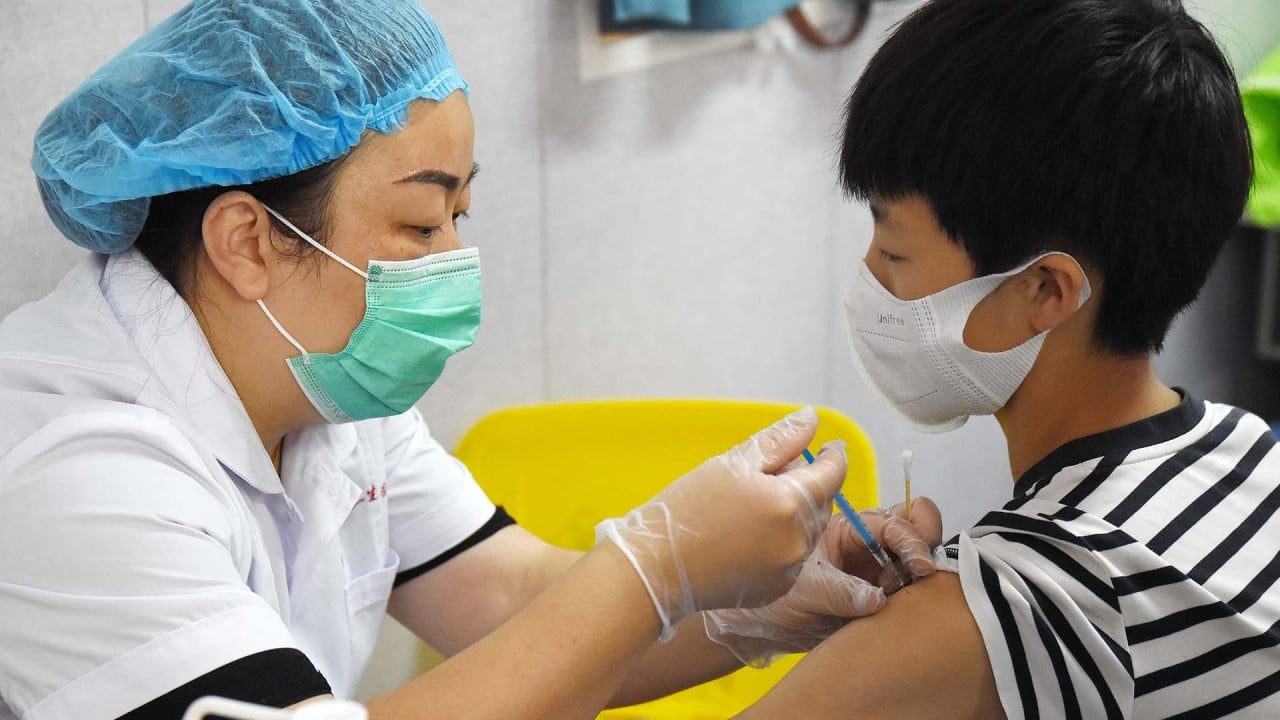
Chinese study suggests using different Covid-19 vaccines for booster shots may be more effective than third dose of Sinovac
- Those given CanSino’s product after two shots of Sinovac recorded higher antibody levels than those who received a third dose of the same vaccine
- The two products use different technologies and CanSino’s single-dose product recorded higher efficacy rates in trials
Zheng Zhongwei, director of the National Health Commission’s Development Centre for Medical Science and Technology, said in Beijing on Tuesday that “only after sufficient scientific data on safety and immunogenicity or efficacy have been obtained can we make expert recommendations for sequential immunisation on large populations”.
The study, carried out by a team from the Jiangsu Centre for Disease Control and Prevention, showed higher levels of neutralising antibodies – which can help protect against Covid-19 – in those given CanSino as a booster compared with those who received a third shot of Sinovac.
Chinese researchers find third Sinovac dose boosts Delta immune response
“Assuming that the neutralising antibody levels correlated with the level of protection for human beings, a … vaccination with CoronaVac [Sinovac] and Convidecia [by CanSino] could be potentially associated with a superior protection to Sars-CoV-2 [the virus that causes Covid-19] in vaccinated human beings,” the study said.
Sinovac, which uses dead matter from the coronavirus to trigger an immune response, recorded an efficacy rate of 50.4 per cent in phase 3 interim studies and has been authorised for use in 39 countries.
CanSino’s single-shot vaccine, which uses another virus as a vector to introduce material from the coronavirus, had an efficacy rate of 65 per cent at the same trial phase and has been authorised for use in eight territories.
Researchers gave a booster shot to 200 people aged between 18 and 59 who had been given two doses of Sinovac three to six months before the experiment, and to 100 people who had been given a single shot.

01:45
China administers nearly 2 billion Covid-19 vaccine doses as Delta variant appears under control
Half the booster shots were Sinovac and the other half CanSino.
The researchers took blood samples from participants before they received the booster shots and then 14 and 28 days afterwards to compare levels of neutralising antibodies. They found that those given the CanSino vaccine reported consistently higher immune responses.
After two weeks, those given two shots and the CanSino booster were producing 78 times the number of antibodies that they were beforehand, compared with 15.2 times the level for those given a third Sinovac shot. There was a similar effect in those who had only received a single shot before getting the booster, although they produced fewer antibodies overall.
The result backs up earlier research from China’s National Institute for Food and Drug Control, published in the journal Emerging Microbes and Infections, which found that animals given an inactivated vaccine as a booster – the technique used by Sinovac – had lower antibody levels than those given other vaccines, including ones using a viral vector, as a booster.
Study finds Sinovac far less effective at reducing deaths in elderly
The study’s conclusion that mixing the vaccines stimulates a broader immune response was attributed by scientists to them triggering a different type of immune response.
Reactions after mixing vaccines were “generally mild to moderate in severity”, and typically resolved within one or two days. No severe fevers were reported but those given the CanSino booster were slightly more likely to take drugs to reduce fever.
The study did not account for the highly infectious Delta variant and cannot say how effective the boosters would be in protecting people against Covid-19.

07:07
The global spread of the highly contagious Delta variant of Covid-19
However, previous studies have found a correlation between higher antibody levels and greater efficacy against the disease.
A separate study by the same team to evaluate the effect of mixing vaccines for the elderly – particularly people over 75 who are often immunocompromised or have coexisting conditions – is ongoing.

